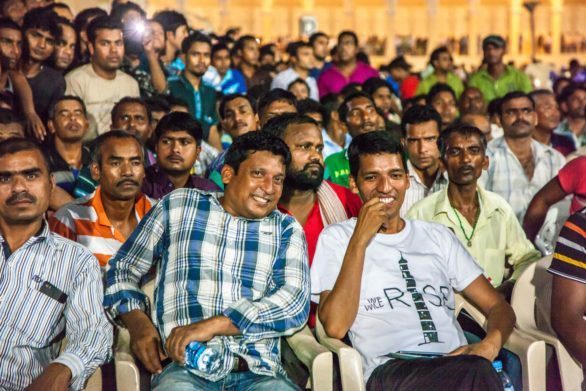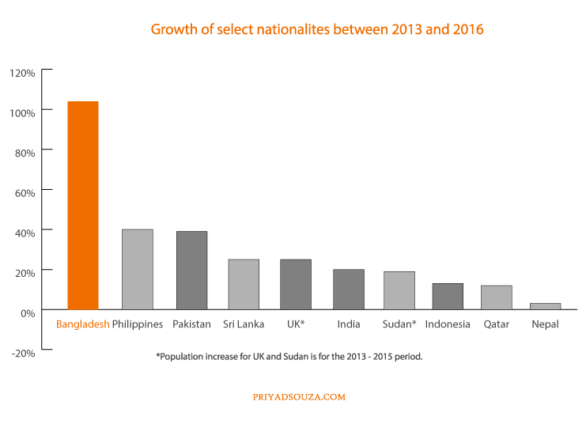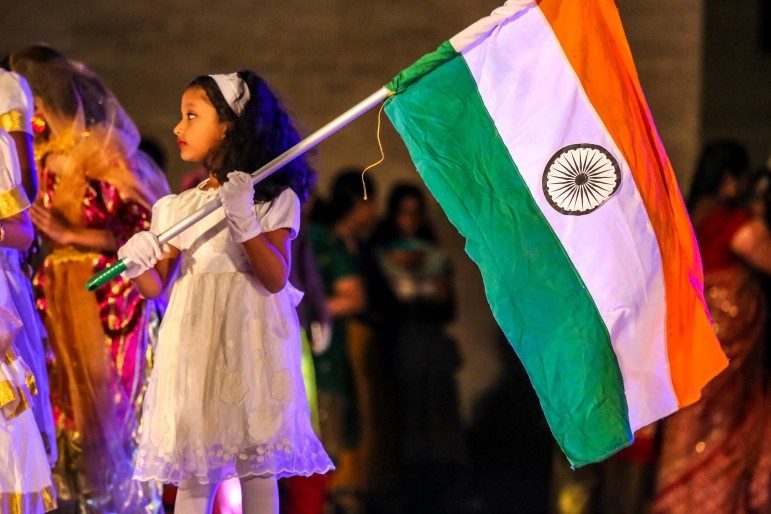
Some 80 percent of Qatar’s population is comprised of people from only six countries: India, Nepal, Qatar itself, Bangladesh, the Philippines and Egypt.
That’s according to “Population of Qatar by nationality — 2017,” an annual report compiled by locally-focused consultant Jure Snoj.
Though the government itself does not publish a breakdown of its population by nationality, Snoj has been tracking the numbers for four years now.

The report arrives at its conclusions by extrapolating data on the number of Qataris from government figures. Snoj also gathered other countries’ information mostly from local embassies and news reports.
He published the first edition in business publication BQ Magazine in 2013 and has been updating it since then.
Touchy subject
Speaking to Doha News, Snoj said that population figures can be a “touchy” topic because Qataris have become a shrinking minority in their own country.
The report states that they currently comprise about 12 percent of the population.

Explaining his motivation for maintaining the index, Snoj said:
“People want to know these things. They are interested in having information on something that is so obviously in their faces.”
He added:
“This sort of demographic statistics are also valuable for businesses of course, not to even mention the academia.
When it comes to Qatari nationals, I believe they have a right to know how many of them there are and the percentage of the total population they represent, alongside with data on where the foreigners come from.”
Biggest shifts
Population shifts in Qatar often reflect the country’s needs during a certain period of time.
This helps explain why there has been a surge in the number of Bangladeshis in Doha over the past few years.

In Qatar, most Bangladeshis are hired to work on construction projects, which have been intensifying in the run-up to the 2022 World Cup.
The report states that the number of Bangladeshis went from 137,000 in 2013 to 280,000 as of early 2016 — a 104 percent increase.
Meanwhile, the Filipino and Pakistani communities have grown 40 percent in the last three years, to 260,000 and 125,000 people, respectively.

And Qatar’s largest demographic community, Indians, grew by about 20 percent, the report found.
However, as Qatar looks to wrap up major infrastructure projects within the next few years, some communities are barely growing at all.
These include Nepal, Lebanon, Malaysia, Palestine, Russia, South Korea, Croatia and Hungary, the report states.
Thoughts?






